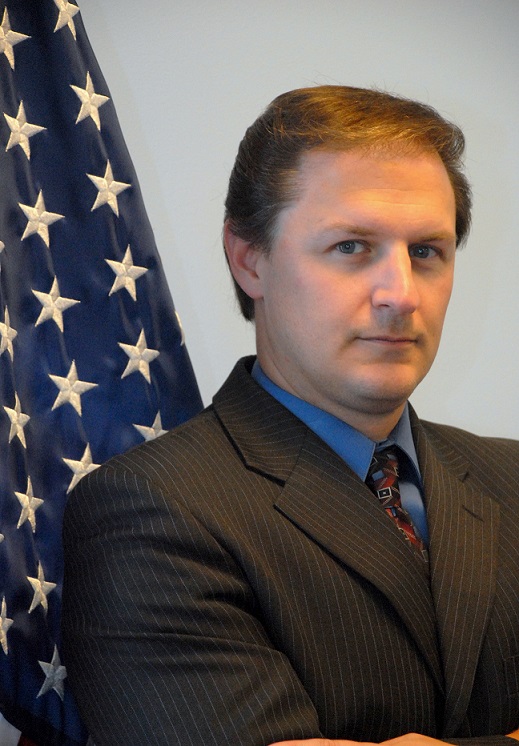Everyone knows there are only two guarantees in life, death andtaxes. For credit union executives, however, there are actuallythree guarantees: Death, taxes and regulatory examinations.
|During CUNA's Governmental Affairs Conference in Washington, agroup of panelists who know the credit union examination processvery well addressed some big regulatory examination issues.
|1. Don't be afraid to ask
| Change may be good idea.But when examiners ask you to change your reports to help themanalyze your credit union, it may not be such a good idea and, moreimportantly, it's generally not required.
Change may be good idea.But when examiners ask you to change your reports to help themanalyze your credit union, it may not be such a good idea and, moreimportantly, it's generally not required.
“What we hear consistently from credit unions is, the exam teamhad me running high and low, doing all these different things,asking me to create specialized reports to help them analyze ourcredit union,” Ken Ross, EVP/COO for the Michigan Credit Union League in Lansing, said. “They brought mecopies of a report from a different credit union, and they thoughtthat it was a good way to look at things. So they wanted me tochange my report to look like this other credit union report.'”
|Invariably, when the next regulatory examination rolls around,the new team wanted the credit union's report prepared in adifferent way.
|“If might have been a nice thing to do to make the informationmore digestible for the examiners, but it caused a whole lot ofheadaches for the credit union,” Ross explained. “Was it requiredby law? No. Was it (related) to safety and soundness? Probably not.But it was a suggestion the exam team was making that the creditunion do something differently in order to accommodate thatparticular examiner's predictions.”
|However, he noted that the way credit unions decide to compilereports for a regulatory examination is strictly a businessdecision.
|“We don't think that there is any circumstance in which youought to be held punitively responsible for making a businessdecision,” he said. “You can make business decisions and take therisk of being right or wrong. It's not, in our view, theregulator's role to dictate those things.”
|So how can credit unions address this issue?
|If examiners are asking your credit union to do something thatseems out of the norm, don't be afraid to ask them to cite thespecific regulation or rule, Ross advised.
|“If you don't get satisfaction, elevate it; respectfully, butelevate it,” he said. “Don't be afraid to talk to the examiner incharge. If you don't get satisfaction there talk to the regionalsupervisor and work your way up to the head of the agency.”
|An examiner who remains unchallenged is every supervisor'snightmare, Ross said, because it could mean they are being poorlyrepresented by an examiner who may need to retire or who may needan attitude adjustment.
|“Take advantage of that opportunity to tell them what ishappening in the field because they can't take action based onrumor,” he said. “They have to hear it.”
|Nevertheless, Ross acknowledged it does take courage to speak upbecause credit unions will have to trust they won't have a targeton their back going forward.
|2. Changing the law
| Following the creditcrisis in 2007, regulatory examinations began to change for manystate chartered credit unions in Illinois.
Following the creditcrisis in 2007, regulatory examinations began to change for manystate chartered credit unions in Illinois.
The Illinois Credit Union League fielded a flood of complaintsfrom cooperatives and state chapters about many inconsistencies inthe examination process. They also expressed serious concerns aboutthe lack of due process, no follow up from examiners on draftreports, and the heavy handiness of a few examiners during theexamination process, according to Patrick Smith, vice president ofcommunications and regulatory affairs for the Naperville-basedIllinois league.
|What also alarmed league officials was that among the 240state-chartered credit unions, there were more than 500 DORsoutstanding.
|“Each credit union had about two DORs, so we thought that was apretty good basis for some discussions with the department,” Smithsaid, referring to the Illinois Department of Financial andProfessional Regulation.
|The IDFPR and league held three roundtable discussions aroundthe state with credit unions. That helped bring the department outof its denial state and realize there were problems that needed tobe addressed, he said.
|Though it wasn't easy, Smith said the Illinois league'scollaborative efforts with state officials led to the developmentof the framework for new legislation, HB 5342, that was signed intolaw in the summer of 2014 by Gov. Pat Quinn. The Illinois leagueheralded it as landmark legislation that is expected to ensure allstate regulatory examinations are conducted in a procedurally andsubstantively consistent manner. The law also clarified theflexibility and authority in a number of credit union operationalareas.
|“The meat of the legislation is in the rulemaking and with the guidelines,”Smith explained. “We tried to hit on all aspects being very fair tothe department and trying to be very fair to our credit unions, andmaking sure the clarity was there. Our goal was that when anexamination is done whether it is (by) examiner A, B, C or D … weshouldn't have wide swings of variations, recommendations ordirectives.”
|According to Smith, the examination complaints have droppedsignificantly, though he did not quantify the reduction ofcomplaints.
|“It seemed like the examiners have taken this to heart,” hesaid. “There are clear guidelines of how the rules of engagementshould be from an examiner's standpoint and it gives due processguidance to credit unions, on the expectations during the exam andwhat they are empowered with in respect to disagreements.”
|3. Clear CommunicationChannels
| Larry Fazio, directorof the NCUA Office of Examination and Insurance, said examinershave been undergoing extensive training to improve the way theycommunicate with credit unions during the examination process.
Larry Fazio, directorof the NCUA Office of Examination and Insurance, said examinershave been undergoing extensive training to improve the way theycommunicate with credit unions during the examination process.
Additionally, he said, the federal agency is encouragingexaminers to maintain an open dialogue with cooperatives throughoutthe year.
|“We want to work with you in developing solutions to problems.We want your solution to be the solution to the problem if it has areally good chance of working,” Fazio said. “We don't want to giveyou solutions for problems. It's better if you come up withsolutions. You know your credit union. You know your membershipbetter than we doTo facilitate that goal, however, Fazio said it'salso important for credit unions to be open to and to be willing tocommunicate with NCUA examiners. The informal appeals process, forexample, enables credit unions to resolve disagreements or issuescited in examination reports directly with examiners, theirsupervisors or with officials at NCUA's regional office.
|“Forty percent of the issues that were raised to theregional office were ruled in favor of credit unions,” he said. “It does work. There is a meeting of the minds, and there isa dialogue that happens.”
Complete your profile to continue reading and get FREE access to CUTimes.com, part of your ALM digital membership.
Your access to unlimited CUTimes.com content isn’t changing.
Once you are an ALM digital member, you’ll receive:
- Critical CUTimes.com information including comprehensive product and service provider listings via the Marketplace Directory, CU Careers, resources from industry leaders, webcasts, and breaking news, analysis and more with our informative Newsletters.
- Exclusive discounts on ALM and CU Times events.
- Access to other award-winning ALM websites including Law.com and GlobeSt.com.
Already have an account? Sign In
© 2024 ALM Global, LLC, All Rights Reserved. Request academic re-use from www.copyright.com. All other uses, submit a request to [email protected]. For more information visit Asset & Logo Licensing.









